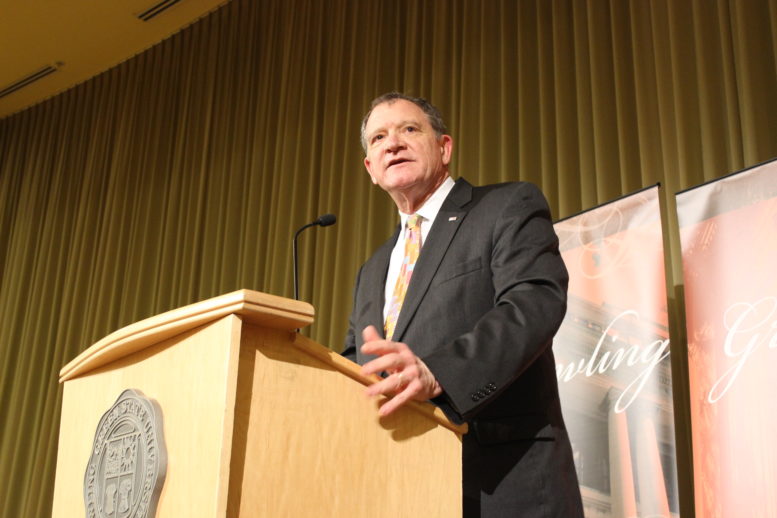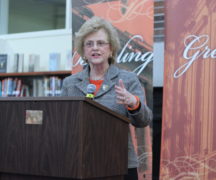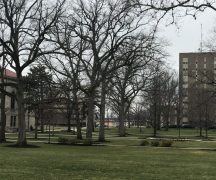By DAVID DUPONT
BG Independent News
The Faculty Senate wound up its activities for the academic year Tuesday with a report on the fate of several academic programs.
Provost Rodney Rogers gave an update on the process for identifying programs that are offered both at the Bowling Green State University and University of Toledo, with an eye for eliminating some and collaborating on others.
The review was mandated by the Governor’s Task Force on Affordability and Efficiency. The state identified 50 duplicated programs.
The criteria to evaluate them was the number of students enrolled and the number of graduates from the program.
Of the 50, 34 programs were identified as worth maintaining on both campuses because of “robust” enrollments.
The last 16 fell into different categories. Four were already in the process of being eliminated.
The bachelor’s degree in athletic training has been eliminated because it can no longer be accredited. A master’s degree has become the accepted credential in the field.
Also, a teacher education program has been absorbed into Adolescent Young Adult (AYA) Integrated Sciences. Two business programs – Accounting Technology/Technician & Bookkeeping with four graduates and. Business/Commerce, General with 11 – are being considered for elimination.
Three programs are being repositioned within their colleges and will continue. Film Studies, for example, has low enrollments because the university now offers a film production major. When considered together, the two programs have 163 students. Another program in Theatre and Film, a Bachelor of Arts degree in drama, provides a liberal arts option in theater as well as the option for double major. The university is awaiting the results of an accreditation review of the department that was conducted last November.
Also, in this category is Women’s Studies. The program supports the university’s mission of promoting diversity and inclusion and the understanding and engaging cultures. The program is low cost because two-thirds of its courses are shared with other programs in School of Cultural and Critical Studies.
Four programs have been identified for collaborations with the University of Toledo — American/United States Studies/Civilization; Art History, Criticism, and Conservation; French Language and Literature; and German Language and Literature.
What shape this collaboration takes will determined by discussions that will continue through the summer and fall, Rogers said.
Finally, five programs with low enrollments were identified, but not flagged for further action because they are new or further growth is expected.
The university must submit its report to the state by Dec. 31.
Rogers also gave a brief update on the state budget. The House version was being released in Columbus about the time the faculty senate met.
Rogers said it called for no increase in state support for instruction, and put a freeze on tuition. There is a proposal that would allow universities to increase tuition for entering students but only if it guarantees those students’ tuition will not rise over the next four years.
The university, Rogers said, had been looking at a 1-percent increase this year, and none in the second year of the biennium. Under that scenario, BGSU was projecting a “modest deficit.”
The key to bringing in more money, he said, is enrolling more students and then keeping them until they graduate.
Rogers said that enrollment projections for next fall continue to be strong.





